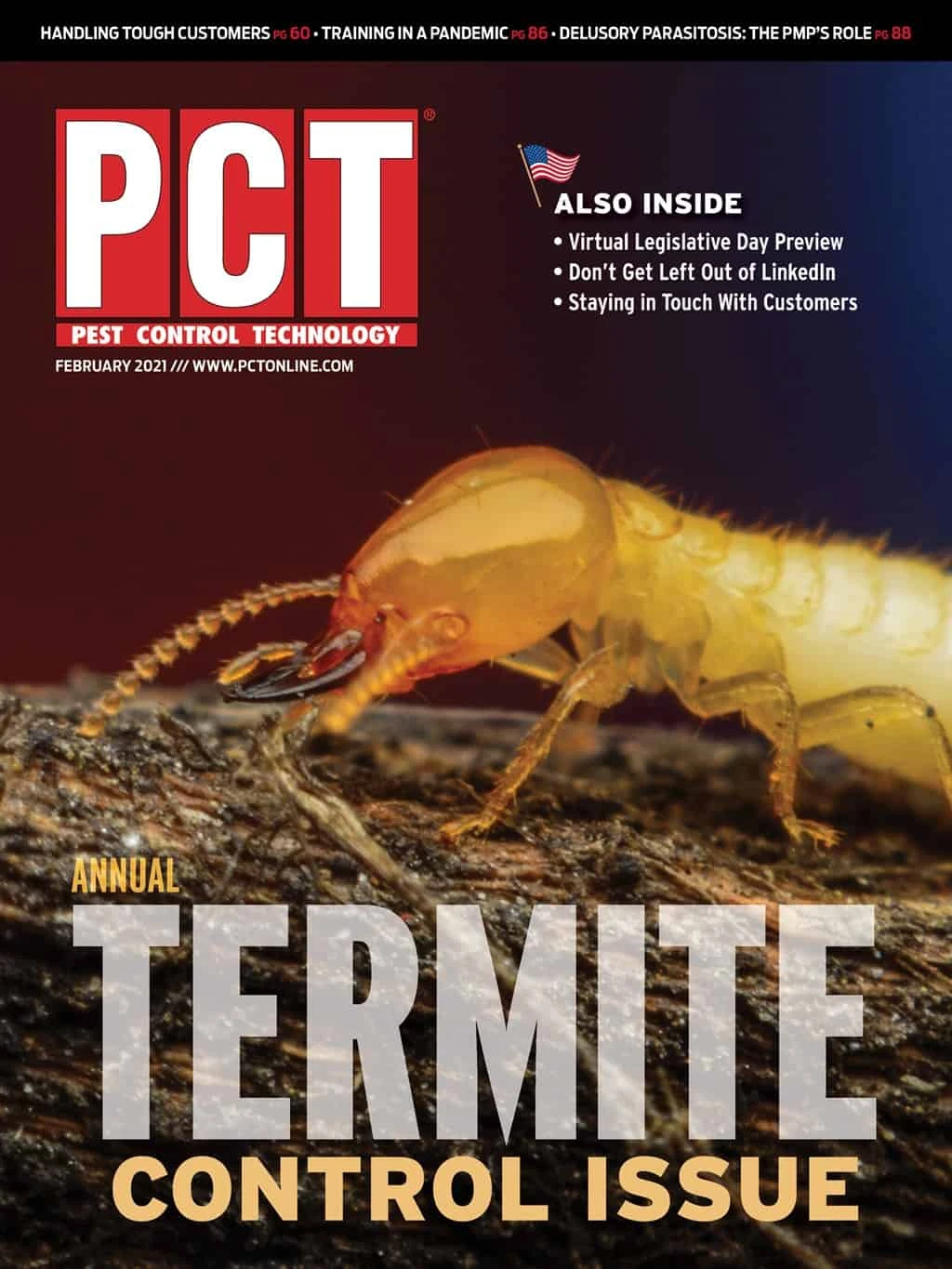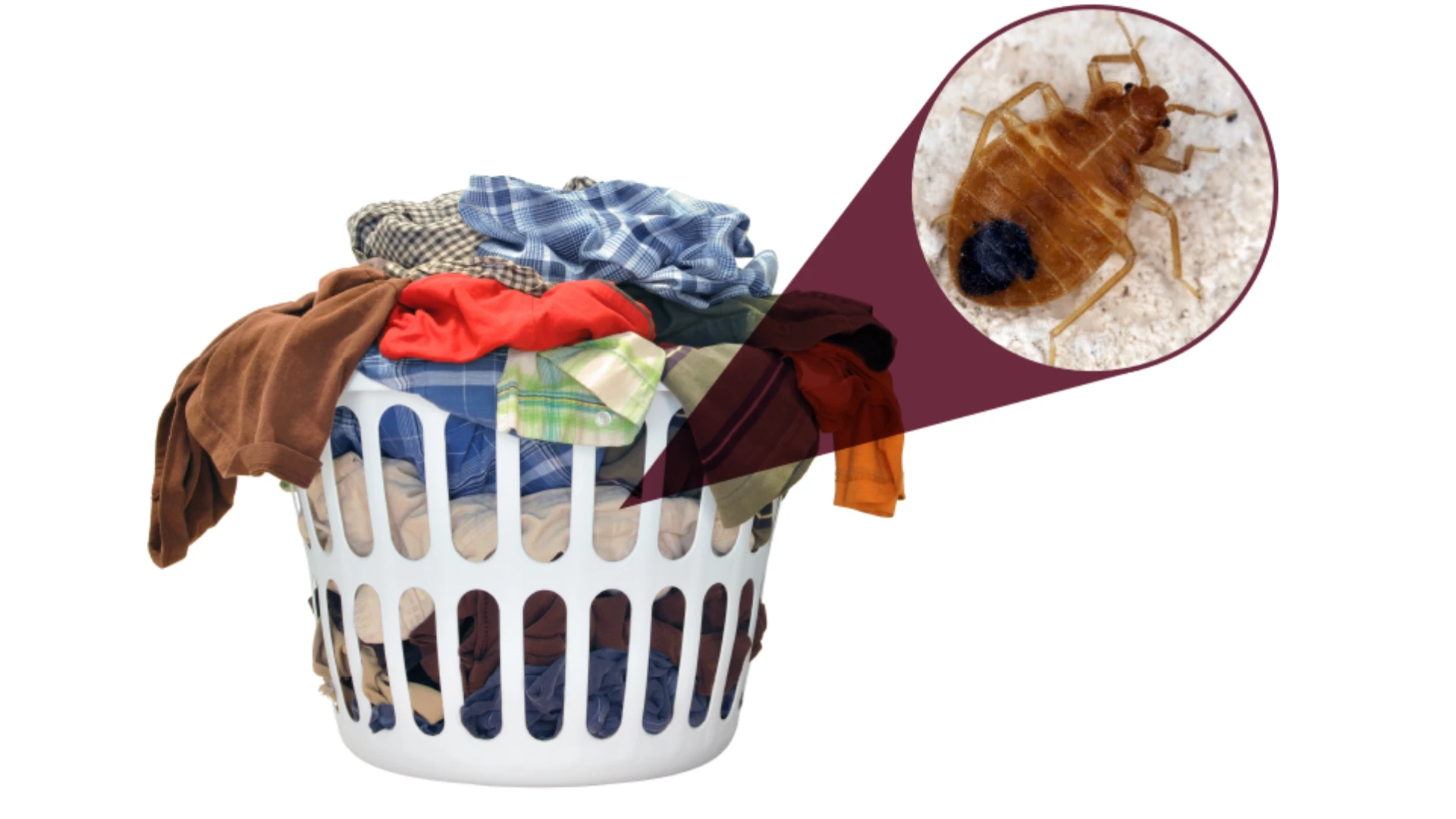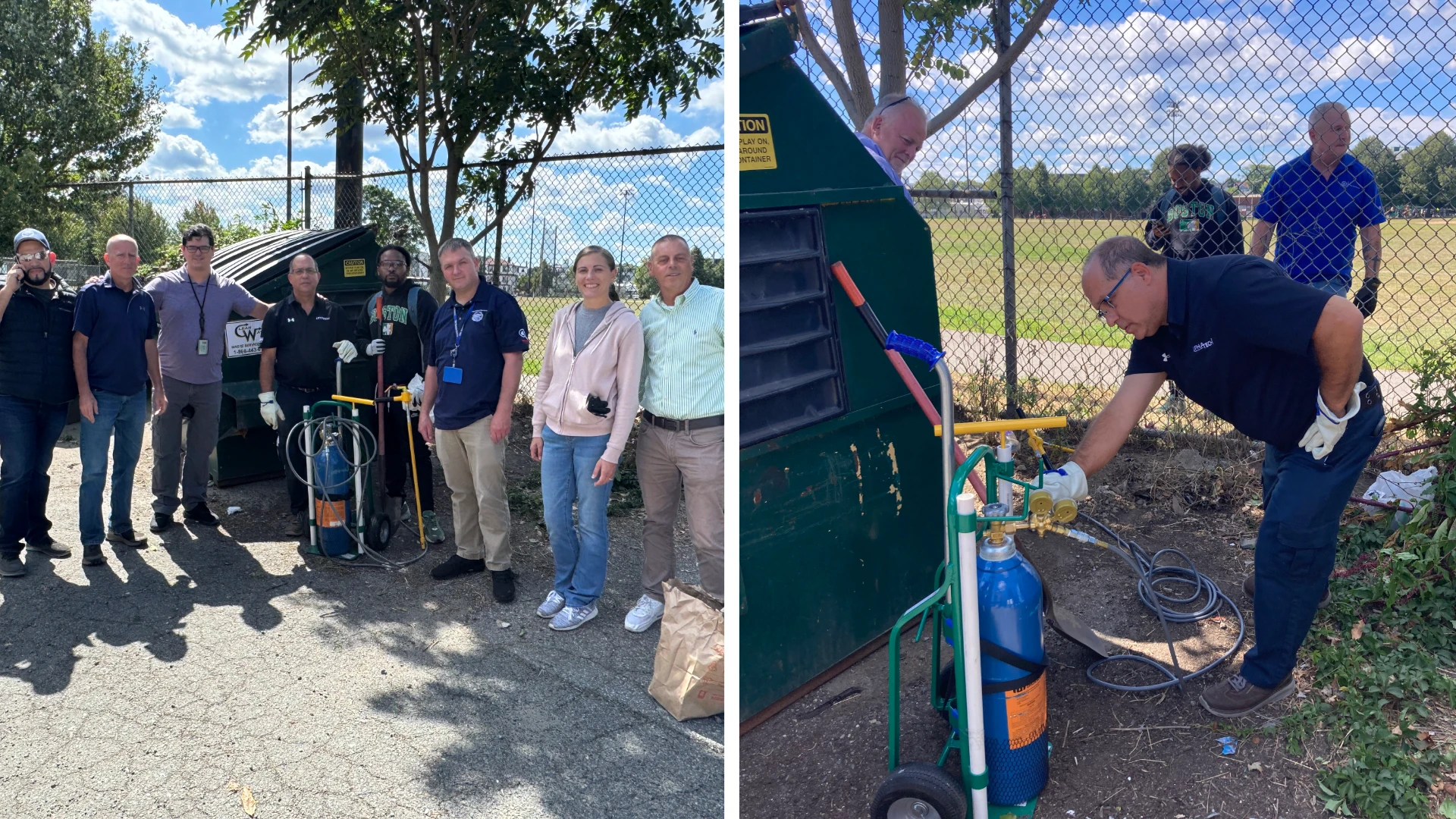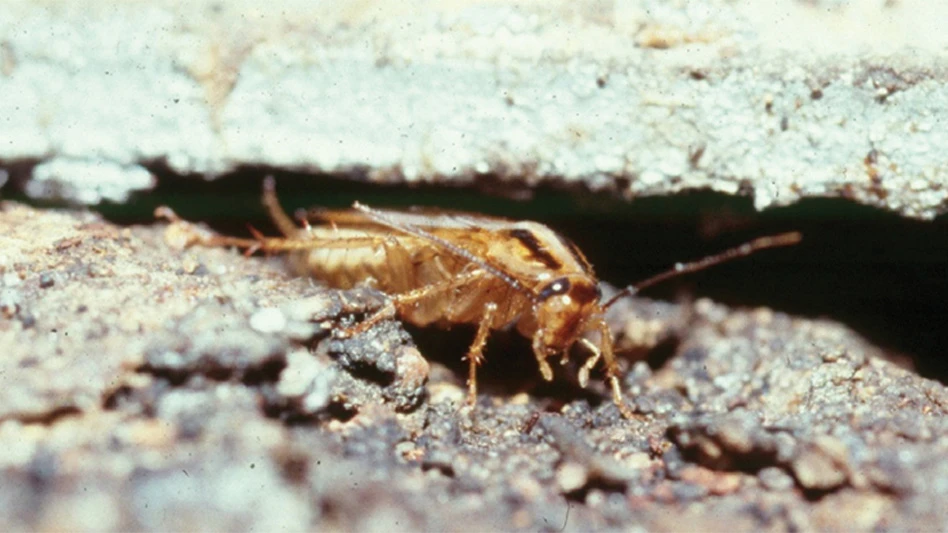
COVID-19 has caused pest management professionals to adapt on numerous fronts, including the most significant annual event where they gather nationally to advocate for pest control regulatory and business issues: the National Pest Management Association’s Legislative Day. NPMA announced this year’s event will take place virtually, March 16-17.
While the format is different, the need is as great as ever to educate congressional representatives about the important role pest management professionals play in protecting public health, food and property — and why PMPs need to remain classified as essential service providers.
HOW IT WILL WORK. NPMA is organizing visits with U.S. House Representatives and U.S. Senators using online platform Soapbox.
With Soapbox, in advance of meetings with congressional reps and aides, NPMA Legislative Day attendees will be able to see up-to-the-minute schedules with pertinent information about their meetings, including what committees their representatives sit on, if they are in leadership, etc.
“We were a little worried about how [Legislative Day attendees] would be able to talk about the issues that are important to us and bring our perspective forward, but after talking with the folks at Soapbox and trying out the technology, I’m actually really excited. It will be very much the same, but a little different,” said NPMA Vice President of Public Policy Ashley Amidon.
NPMA has done its best to make sure programming mirrors previous Legislative Day events as closely as possible. For example, there is still time on the schedule for Legislative Day attendees to meet with others from their states and discuss strategy prior to visits.
While Amidon acknowledged that not meeting face-to-face can be challenging because you can not observe body language, there are some advantages to virtual meetings. “It doesn’t have to be like the meetings that we all have internally where there’s an agenda and we sort of knock one item out after the other and then we’re done,” she said. “It’s really getting folks to realize that everybody loves to chit chat. Everybody loves the chance to really connect on a personal level and we want to make sure that that element remains.”
In addition to the transition to the President Joe Biden administration, Congress now looks different following the November 2020 elections. It will be important for Legislative Day attendees to make inroads with first-time representatives, some of whom have no idea how PMPs protect public health.
At press time, NPMA was still finalizing issues members will be taking to the (virtual) Hill, but Amidon said the following three issues will most likely be the focus.
GENERAL PESTICIDE ADVOCACY. Amidon said the pest control industry must remain vigilant defending pesticide usage, including advocating for preemption and opposing the recently introduced PACTPA.
Preemption. NPMA and other groups, have for many years urged Congress to codify the exclusive role of state lead agencies as pesticide co-regulators with EPA. Currently, 44 states have preemption, meaning the state lead agency preempts the local government when it comes to determining how pest control products and services are employed.
For PMPs who operate in states without preemption, they are challenged with having to comply with different laws and regulations in each of the communities they service. In addition to the six states that do not have preemption, efforts are being made in Colorado, Connecticut, Florida, Massachusetts, Minnesota, New York and Wisconsin to repeal preemption.
PACTPA. In August, U.S. Representative Joe Neguse (D-Colo.) and U.S. Senator Tom Udall (D-N.M.) introduced H.R.7940, “Protect America’s Children from Toxic Pesticides Act (PACTPA).” The Protect America’s Children from Toxic Pesticides Act would ban organophosphates and neonicotinoids — pesticides commonly used by PMPs.
One of the most problematic elements of this bill is a nationwide repeal of preemption, which would allow every local community to enact legislation and other policies without being vetoed or preempted by state law.
“We knew that bill wasn’t going anywhere, but were really concerned that a lot of the elements could be included in future packages,” Amidon said.
The call to action for Legislative Day attendees is to educate their legislators that despite its claim of protecting children, PACTPA includes arbitrary pesticides bans that have the potential to take away tools that PMPs need to safeguard people and property from pests.
COVID-RELATED ISSUES. A number of COVID-related bills are making their way through Congress or are expected to be introduced. A COVID relief package was expected to be introduced in February.
Legislative Day also will ask their congressional reps to support the Assistance and Gratitude for Coronavirus Heroes in Agribusiness who are Invaluable to the Nation, also known as the AG CHAIN Act. Introduced in May 2020 by Rep. Glenn Thompson (R-Pa.) and Rep. Dwight Evans (D-Pa.), the bill is an extension of the previously introduced GROCER Act. It would provide a federal tax holiday and a payroll tax exemption for all essential employees in the food and agriculture industry defined by recent Department of Homeland Security guidance. “Given that we have a lot of folks in our industry who protect facilities ranging from grocery stores to food processing plants from pests, we fall into to this,” Amidon said.
NPMA has done a lot of work educating legislators that many pest control companies perform disinfection services. Along with that education, they are encouraging Congress to provide a tax credit to small businesses so they can hire professionals to provide disinfection services.
EDUCATION. Amidon said it will be important for NPMA members to raise awareness of the pest control industry during the Legislative Day meetings. With a new administration comes new administrators, heads of agencies, and new leaders at department levels. “We’ll be working to tear down incorrect ideas about what we do as an industry. We have to do this with every Congress,” Amidon said. “You get folks that come in and they’ve never dealt with our industry, and they have this preconception that all pesticides are bad. That’s why we feel that the public health aspect is so important.”
Learn more about NPMA Legislative Day 2021 by visiting http://legislativeday.npmapestworld.org.

Explore the February 2021 Issue
Check out more from this issue and find your next story to read.
Latest from Pest Control Technology
- Rentokil Terminix Expanded in Key Markets with 2024 Acquisitions
- In Memoriam: Joe Cavender
- Liphatech Adds Alex Blahnik to Technical Team
- Do the Right Sting: Stinging Insect Identification, Management, and Safety
- VAGA's 8th Annual Veterans Thanksgiving Appreciation Dinner
- Clark's Blair Smith on the Response to Increased Dengue Fever Cases in Southern California
- WSDA, USDA Announce Eradication of Northern Giant Hornet from U.S.
- Ned’s Home Acquires Ultra Safe Pest Management





